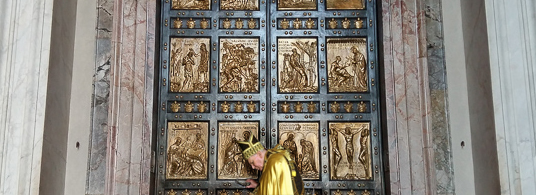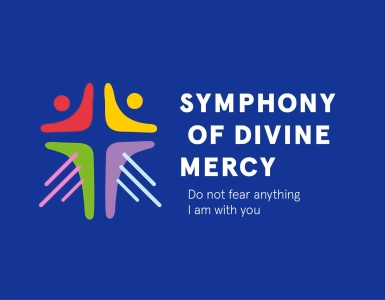John Paul II was pressing hard, but it seemed that the Holy Door did not want to open. In the atrium of the Basilica of Saint Paul Outside the Walls those who did not know about it, there was embarrassment. It lasted for a moment. Immediately, it became clear that it was not the Pope who could not open it. He just waited. He waited for the hands of Orthodox Metropolitan Athanasios and Anglican Primate Carey join his hands placed and pressing the door. At that moment, under the pressure of six hands, the door opened. And all three knelt. For the first time ever, the Bishop of Rome, the successor of St. Peter, and the most senior representatives of the Orthodox East and Western Protestantism, opened the Holy Door together, together crossed the threshold and entered the Basilica. The basilica that has a particularly ecumenical dimension, as it is dedicated to the Apostle of Nations. The Holy Father himself wanted it. He wanted this sign with a deep overtone – the presence of all representatives of the Christian world. After the ceremony, they went for a dinner. After being together at the altar, they sat together at the table. There was a great mood. On behalf of all, the Holy Father expressed gratitude to God for the “great gift” of that day. That scene from January 18, 2000, included all the symbolism of the ecumenism path with its various historical fate, numerous difficulties that had recently emerged, and which were further complicating the old controversy. But, also with the determination, the desire of Rome and the Orthodox and Protestant Churches to strike out the painful legacy of the past “scandal” of the division between Christians, which dragged on until the third millennium. It was for this reason that, immediately after his election, John Paul II asked for a visit to the ecumenical Patriarchy of Constantinople. He wanted to demonstrate to the strong intention of the Catholic Church, and especially the new Pope, to continue and to deepen the dialogue with all Orthodox Churches. He did not want to be discouraged by inevitable obstacles. In one conversation, the Holy Father said: “Ecumenism is Christ’s desire, ut unum sint, to be one. It is the desire of the Second Vatican Council and it is also my desire and the program, regardless of the difficulties, misunderstandings, and sometimes even attacks.”
Cardinal Stanisław Dziwisz – “Testimony”
TBA Publisher, Warszawa 2007





